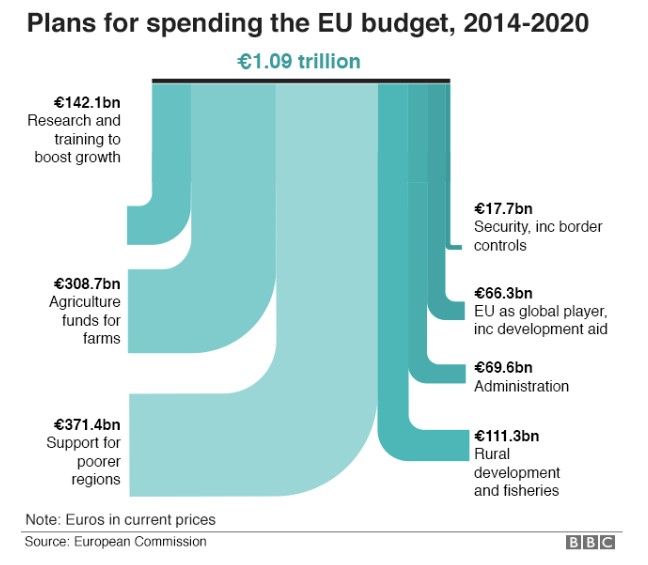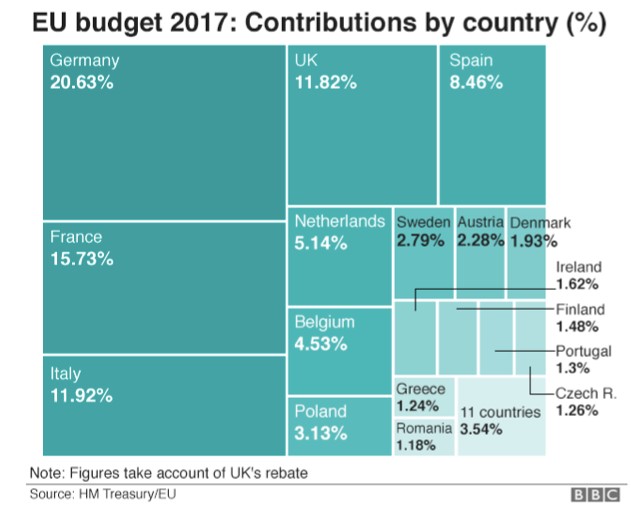Cuts and higher member contributions have the European Union locking horns with Hungary and Poland as the bloc tries to fill a massive 14-billion-euro gap left by Brexit next year.
Today, the European Commission will propose its $1.2-trillion, 6-year budget that will have to make up for significant shortfalls without the UK in the bloc.

(Click to enlarge)
It is the equivalent, the BBC notes, of “440 million EU citizens each buying one cup of coffee a day”.
But it’s a bitter cup of java.
In the process, they’re locking horns with Poland and Hungary—neither of which are willing to bow to any conditions on their EU funding. That includes accepting refugees or linking funding to respect for the rule of law.
Brussels is hoping to get the budget passed before May 2019, when the next European Parliament elections will be held, but that will be a tough challenge in the current atmosphere. The budget agreement must be unanimous, and presently that appears less than feasible.
While France and Germany are ready to pay more into the new budget to make up for Brexit, other member states—both east and west—are gearing up for a fight.
Austria and the Netherlands have made it clear they will resist demands for more contributions, while Spain and Italy have been balking at the current budget’s massive 35-percent earmark for development in poorer European countries. Both would like to see some of that largesse diverted to them to help deal with mass youth unemployment.
Related: What Really Drives The Price Of Gold?
To make up for the loss of one of the largest contributors, the UK, the EU will likely see a 10-percent budget cut, but the European Commissioner is also asking for a 1.1-1.2-percent increase in member state contributions.
In 2017, the UK contributed 11.82 percent of the EU budget, while Germany was the largest contributor, with over 20 percent.

(Click to enlarge)
So far, not so good. Hungary and Poland have both rejected the budget plan, as proposed to date, and both are under pressure from Brussels for their failure to respect the rule of law.
In Poland, it’s about controversial judicial reform, and in Hungary, it’s about a lurch to the right that puts Europe’s immigration policy at risk. In both, it’s a bigger issue of government influence over the courts and the media.
From the perspective of Hungary and Poland, the new EU budget post-Brexit is trying to buy subservience, politically. And they’re not having it.
It doesn’t help that the two countries’ willingness to take in refugees, and at the same time the EU budget will see cuts to “cohesion”, which is development funding for poorer member states. Related: Is The SEC Warming Up To Cryptocurrencies?
From Brussels’ perspective, it’s time to get something more for their money in terms of compliance and migrate relocation.
"We need a deal at the end," a senior EU source told the Independent. "My expectation is that some net contributors are willing because they know Europe is important for them.
It’s a trillion-dollar gamble that will likely last for many months. It will also be the battle that determines who is the real EU powerhouse, or more specifically, as one source told the Independent, it will “show where the political power rests post-Brexit in the EU”.
By Tom Kool for Safehaven.com
More Top Reads From Safehaven.com:
















